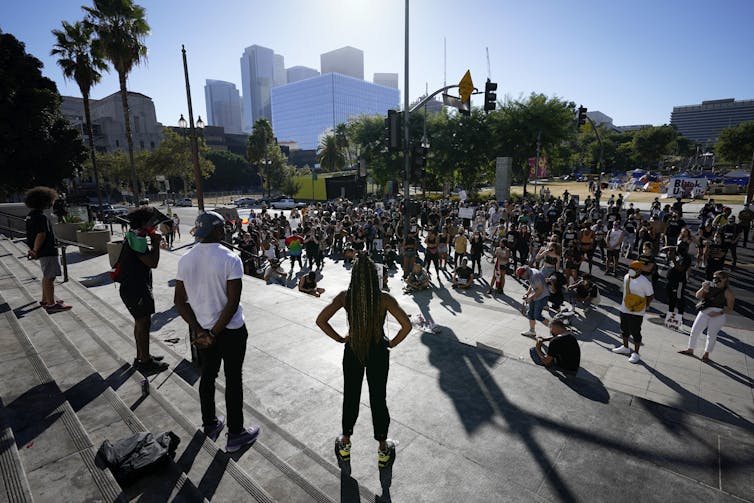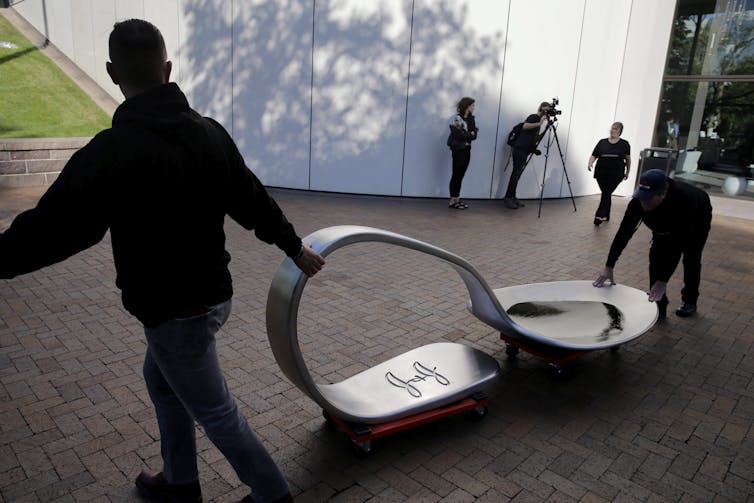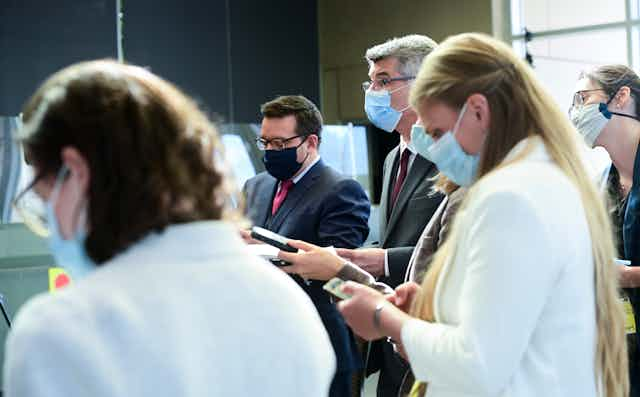One of the most important functions of journalism in a democratic society is to act as a watchdog — to call out abuses of power or wrongdoing.
Journalism builds on the standard of the watchdog function — or, what’s described in the 2009 book Normative Theories of the Media: Journalism in Democratic Societies as journalism’s “monitorial role.”
But the watchdog function of the news, as the book explains, is not the only role journalism can play. Yes, it’s vital for journalists to act as society’s burglar alarms. However, journalism can and should take on other functions in a democratic society.
One of the most important is to challenge the status quo — to force us to confront our assumptions about how the world works.
Widening the lens
The COVID-19 pandemic, as well as worldwide protests against anti-Black racism, have forced society and journalists to confront many of our assumptions about issues like the power of police, white privilege and the various other inequalities that disproportionately affect racialized communities.
Limiting journalism to merely watching over and reporting on these events narrows the range and scope of all the things that journalism can and should be doing.

Michael Schudson, a journalism professor at Columbia University, describes the news media as the tip of the social iceberg. Below the tip are institutional structures and social forces that often go unrecognized and, as a result, are under-reported or under-examined.
Expanding the range of what journalism could and should do is about diving deeper and getting at all that is going on below the tip of the iceberg — to unpack the historical context and the underlying causes at the root of complex stories.
Journalism is rightly concerned with fairness and accuracy, but those standards are usually achieved through the idea of balance, and the use of traditionally accepted sources. But balance can be an inadequate standard, because it can reduce complex stories to binaries pitting one side against the other. False equivalency is obviously hugely problematic.
Professed norms of reporting also limit journalists to a limited selection of sources, notably people with some kind of power or authority. The perspectives and lived experiences of women, people of colour, minority groups or marginalized communities are, as a result, regularly overlooked or relegated to the background, usually subconsciously.
Calling out problems
Journalism is great at calling out problems from stories requiring months of investigative work to day-to-day coverage. However, it’s much more difficult for the news to effectively get at the causes behind those problems — the ambiguities and the social and historical dynamics that explain why certain things are the way they are.
For journalists, there is a fine line between telling people about a problem, and telling people what to do about the problem. The former is within the purview of journalism; the latter falls squarely in the realm of advocacy or policy.
There is, however, a role for journalism — largely unfulfilled — to get at the roots of social challenges, and to identify responses to them. This isn’t about journalists telling you what to do; it’s about giving you a fuller picture of what you need to know.
Such reporting takes a high degree of skill, involving analytical framing and what Schudson calls “social empathy.” It takes a lot of skill to tell a story that feels fresh and newsworthy, but that also brings underlying dynamics out from behind the wings and onto centre stage.
Opioid crisis
Consider the opioid crisis. Stories about crime affecting local residents and businesses are relatively straightforward and easy to tell, and they capture attention.
However, such an approach largely strips the story of its context — notably, the fact that substance abuse is not a crime problem, requiring a crime control response, but may be a mental health issue, one that often, though not always, affects people on the margins of society. That context is not somehow peripheral to the story; in fact, it is the story.

Journalism can and should address subconscious social bias, wherever such bias exists. This includes, but is not limited to, taking on an anti-racist ethos to actively challenge existing power dynamics.
Doing this work involves a philosophical change in how journalists see their role. What would news stories look like as a result of this change in mindset?
Rethinking police
For example, policing would not automatically be seen in the context of crime control, as is the current standard.
Instead, journalism would explore policing as matter of community building.
Read more: Force is no substitute for social justice, so let's dismantle the police
Or news reporting would actively challenge the idea of substance abuse as somehow a choice that people make, and instead report on it through a lens of sensitivity and understanding.
Journalism has so much more potential and power to go beyond its conventional watchdog role. But broadening the scope of journalism involves reporters and editors adopting an entirely different philosophical approach for the benefit of audiences, sources — and journalists too.
It’s hard to challenge assumptions, but journalism is perfectly suited to confront the status quo. This isn’t advocacy; it’s just good journalism.

